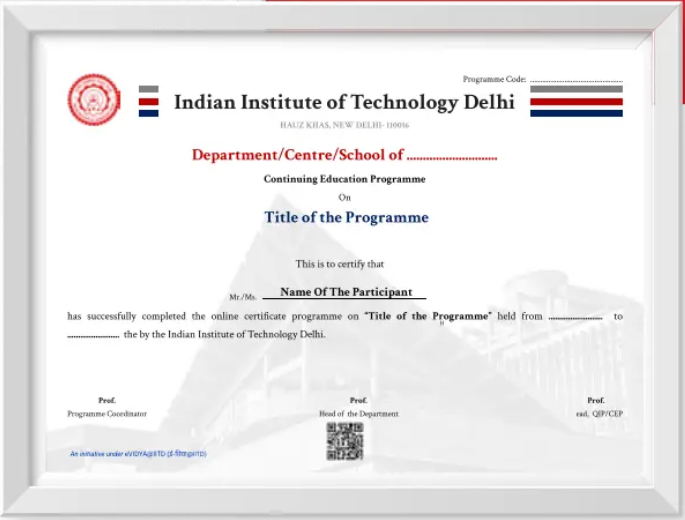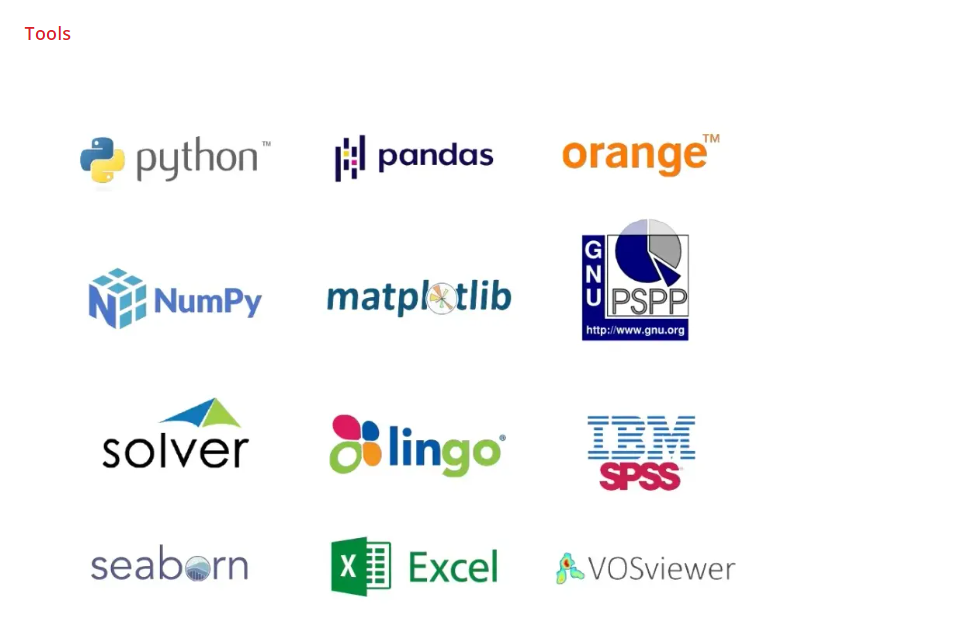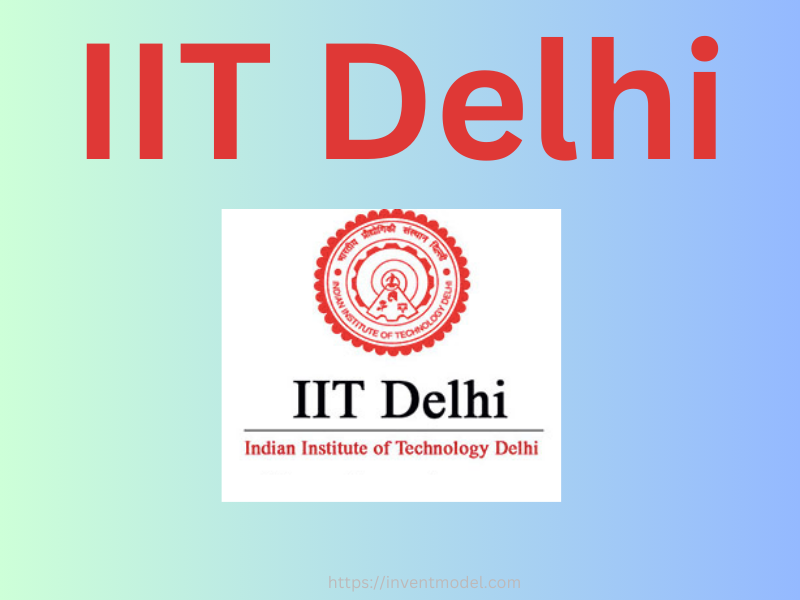IIT Delhi Advanced Certification In Data Science And Decision Science
IIT Delhi Advanced Certification In Data Science And Decision Science
Created By: Team InventModel
Requirements
Who Should Attend?
Professionals aspiring to gain a foothold in the Data Sciences and Machine Learning domain.
Data Science professionals seeking to gain an in-depth knowledge of the key aspects of Machine Learning, Artificial Intelligence and Decision Sciences.
Experienced leaders willing to deep dive into Decision Sciences to gain assistance in decision-making
Eligibility Criteria
- Graduates or Postgraduates in Science, Engineering, Business or any related disciplines
Course Description
Contact (Call/WhatsApp): +91-98703-81810
Program overview:
The IIT Delhi Advanced Certification in Data Science and Decision Science addresses the dynamic needs of the industry, equipping participants with advanced skills in data analytics, artificial intelligence, and machine learning. With a strong focus on practical problem-solving for management decision-making, this Programme blends rigorous theoretical knowledge with hands-on experience. Graduates are well-prepared to excel in the field of data science and drive substantial career advancements.
Programme Timelines
|
Application Closure Date |
30th August, 2024 |
|
Programme Start Date |
28th September, 2024 |
|
Programme End Date |
May 2025 |
Course Fee: ₹ 1,89, 000 + Taxes
Class Timings: 3 to 4 Saturdays | 9 a.m. onwards
Duration: 8 Months
- 120 Hours of Live Teaching / Interaction
- 40 Hours across 2 Capstone Projects (Group activity)
- 200 Hours of Self-paced Learning (50 hours for preparing for quizzes/assignments + 150 hours of Extra Reading Material)
Who Should Attend?
Professionals aspiring to gain a foothold in the Data Sciences and Machine Learning domain.
Data Science professionals seeking to gain an in-depth knowledge of the key aspects of Machine Learning, Artificial Intelligence and Decision Sciences.
Experienced leaders willing to deep dive into Decision Sciences to gain assistance in decision-making
Eligibility Criteria
- Graduates or Postgraduates in Science, Engineering, Business or any related disciplines
Admission Criteria
Selection will be based on application review.
Certificate and Assessment
Evaluation
Each vertical, Data Science and Decision Science will have equal weightage of 100% each.
40% - Two examinations for each vertical i.e., Data Science and Decision Science
40% - Capstone Project Implementation
20% - Case studies, in-class assessments, and data/mathematical modelling problems
Certification
Candidates who score at least 50% marks overall and have a minimum attendance of 40%, will receive a ‘Certificate of Successful Completion’.
Candidates who score less than 50% marks overall and have a minimum attendance of 40%, will receive a ‘Certificate of Participation’.
The organising department for this programme is the Department of Management Studies, IIT Delhi.
Sample Certificate
*Only e-certificates will be issued by CEP, IIT Delhi for this programme.

How It Works
Step1: Select course of your interest and register.
Step2: Receive Counselling from our Programme Advisors.
Step3: Get your documents verified and give an Interview if applicable.
Step4: Obtain Offer Letter and Give your Acceptance.
Step5: Pay Preliminary Course Fee.
Step6: Complete Onboarding and commence Course.
Key Highlights of Program
Live online lectures by IIT Delhi faculty
Holistic understanding with capstone project implementation
Campus visit at IIT Delhi
Curriculum covering contemporary concepts and tools of data & decision sciences
Sessions on GenAl and Large Language Models
E-certificate issued by CEP, IIT Delhi
Key Learning Outcomes
Develop a strong understanding of different types of data science, artificial intelligence and machine learning algorithms and related mathematical models of decision science.
Develop a strong focus and problem-solving logic for handling complex data problems for management decision making involving data science and decision science.
Develop an acumen towards problem solving for complex data analysis with an algorithmic and systematic approach, which is techno-functional in nature.
Develop an acumen to understand and analyse large datasets with computationally intensive and mathematical algorithms.
Enable problem solving ability through hands on exercises and capstone projects.
Gear up for a transition towards a data science and decision science career whereby the shift may happen within the organisation or in a new organization
Programme Delivery
Live Online Sessions delivered Direct-to-Device (D2D)
Campus Immersion
Optional campus immersion at IIT Delhi Campus for interaction between faculty and learners.


Job Roles
Below are the job roles available in this field -
- Business Analyst - Business Analysts
identify business needs and determine solutions to business problems. This
often involves analysing data to improve processes, products, services, or
software. They work closely with stakeholders to gather requirements and
ensure solutions align with business goals.
- Data Analyst - Data Analysts
collect, process, and perform statistical analyses on large datasets. They
create reports, dashboards, and visualisations to help organisations make
data-driven decisions. They focus on interpreting data to find trends and
patterns that inform business strategies.
- Data Scientist - Data Scientists
use advanced statistical, machine learning, and programming skills to
analyse and interpret complex data. They build predictive models and
algorithms to solve business problems and provide insights that drive
strategic decision-making. Their work often involves handling big data and
developing data-driven products.
- Decision Scientist - Decision Scientists
apply analytical and quantitative techniques to assist decision-making
processes within an organization. They leverage data science, operations
research, and behavioural science to develop decision support systems and
provide actionable recommendations for optimising business performance.
- Data Architect - Data Architects design and manage an organization’s data infrastructure. They create blueprints for data management systems to integrate, centralize, protect, and maintain data sources. Their work ensures that data is accessible, reliable, and efficiently stored, supporting various analytical and operational needs.
Course Content:
Common Module for Data Science and Decision Science Vertical
Module I: Python programming
- Data Management and Manipulation
- Central Tendencies, Dispersion and Correlation Analysis
- Clustering, Multinomial Regression and Logistic Regression Analysis
- Longitudinal Data / Time Dependent Data Analysis
- Supervised Learning and Classification using Decision Trees and ANN
- Text Mining, Natural Language Processing and Sentiment Analysis
Learning outcomes:
- Develop knowledge about data manipulation in python
- Learn how to handle large volumes of data
- Build skills to implement machine learning using python
- Develop managerial inferences from Big Data
Data Science Vertical
Module 1 Descriptive and Inferential Analysis
- Introduction to Data Science and Types of Data Management Enterprise Systems
- Data Visualisation - Methods and Approaches in Computer Human Interaction Principles
Learning outcomes:
- Develop knowledge about data manipulation in python
- Learn how to handle large volumes of data
- Build skills to implement machine learning using python
- Develop managerial inferences from Big Data
Module 2 Artificial Intelligence and Machine Learning
- Multidimensional Data handling, Regression, Unsupervised Machine Learning
- Predictive Analytics with AI/ML - Advanced Supervised and Unsupervised Machine Learning
- Machine Learning using Artificial Neural Networks and Fuzzy Set Theory
- Supervised ML - Decision Trees, Random Forest, SVM, Naïve Bayes Classifiers, Ensemble Learning
Learning outcomes:
- Learn the computational background of supervised machine learning algorithms
- Learn the computational background of unsupervised machine learning algorithms
Module 3 AI/ML for Big Data and Cognitive Science
- Machine Learning using Deep Learning and Convoluted Neural Networks
- NLP in Social Media Analytics - Sentiment Analysis, Text Summarisation, Topic Modelling, LDA, Network Analytics
- Network Science with Graph Theory, hands on exercises with small networks data
- Generative Artificial Intelligence and Chatbots, Large Language Models using Deep Learning
Learning outcomes:
- Build blocks for computer vision
- Understand how large-scale graphs operate in internet ecosystems
- Understand how web search and social networks operate on user generated data
- Learn to design Chatbots
Module 4 AI/ML for Managers
- Data model building for ML and Big Data applications - Boston City Case Study
- Governance of AI/ML - Fairness, Accountability, Transparency, Ethics, UX & Regulations
- UI driven Python (Orange), Supervised and Unsupervised Machine Learning
- Generative Artificial Intelligence, Conversational AI and Prompt Engineering
- Reinforcement Learning and Federated learning
Learning outcomes:
- Understand governance of AI/ML systems in enterprises
- Learn the evolution of code based to no-code environments for data scientists
- Master emerging machine learning paradigms for future
Module 5 Data Science Learning Enrichment & Assessment
- Data Science Capstone Project - Unsupervised and Supervised Machine Learning Implementations
- Individual Evaluation on Data Science and Machine Learning
Learning outcomes:
- Learn how to deploy AI/ML algorithms for data science projects
- Develop understanding on futuristic issues for data science professional
Decision Science Vertical
Module 1 Overview to Decision Science
- Understanding Main Pillars of Business Decision Science and Heuristics/Meta-Heuristics/AI
- Central Limit Theorem, Distributions, Dispersion, Population, Sample, T Test, Z Test, Chi Square Test
- Comparing Multiple Groups - ANOVA, MANOVA
- Linear Algebra - Matrix Operations, Determinants, Vectors and Eigen values
Learning outcomes:
- Understand the main pillars of Decision Science viz. Prescriptive, Predictive and Descriptive Decision Science
- To provide basics on Statistics to understand the main pillars of Decision Science.
Module 2 Prescriptive Decision Science
- Introduction to Linear Programming (Single Objective) and solving using Solver/ LINGO
- Sensitivity Analysis using Solver/LINGO
- Goal Programming (Multiple Objectives) Using Solver/LINGO
- Application of LP/NLP in Business Decisions through Case Study
Learning outcomes:
- Understand Prescriptive Decision Science
- Develop Prescriptive models using examples
- Solve Prescriptive models.
- Explain the use of Excel solver and LINGO packages in solving the prescriptive models
- Discuss practical cases to show application of Prescriptive Decision Science
Module 3 Predictive Decision Science
- Time Series Analysis (Moving Average, Exponential)
- Time Series Analysis (Holtz and Winter-Holts Model)
- Auto Regressive Integrated Moving Average Models
Learning outcomes:
- Understand Predictive Decision Science
- Discuss time series methods in Predictive Decision Science
- Learn regression methods in Predictive Decision Science
Module 4 Multi Criteria Decision Science
- Multi Criteria Decision Making: ISM, DEMATEL, AHP
- Multi Criteria Decision Making: IRP, ANP, TOPSIS
Learning outcomes:
- Understand Descriptive Decision Science
- Discuss popular Descriptive Decision Science using practical examples
Module 5 Decision Science Learning Enrichment & Assessment
- Decision Science Case Study Approaches
- Decision Science Capstone Project
- Individual Evaluation on Decision Science
Learning outcomes:
- Group case study presentations
- Demonstrate the real-life applications of all pillars of Decision Science
- Individual evaluation
Capstone Projects
Data Science:
Students would be shared datasets with
large volume of data. On that dataset, first the students need to demonstrate
skills surrounding feature selection. Subsequently students need to run
algorithms for unsupervised algorithms. Lastly on the data set, students need
to demonstrate applications of multiple supervised machine learning algorithms
and evaluate these algorithms for their suitability, given the context of the
data / case setting. Project implementation may be undertaken in a combination
of SPSS/PSPP, Python and Orange.
Decision Science:
Participants would be exposed to all
three pillars of decision science viz. prescriptive, predictive and descriptive
decision making through various modules under decision science. To easily
implement the concepts, practical examples would be discussed through case
study-based capstone project. These tools and techniques would be discussed
using Excel, Excel Solver, Python, and LINGO.
Dates and Fees
Programme Fee
Here are the fee details of the IIT Delhi Advanced Certification in Data Science and Decision Science Programme
|
Particulars |
Amount (₹) |
|
Programme Fee |
1,89,000 |
|
GST @18% |
34,020 |
|
Total Fees |
2,23,020 |
Note:
All fees should be submitted in the IITD CEP Account only, and the details will be shared post-selection.
Withdrawal & Refund from Programme
- Candidates can withdraw within 15 days from the programme start date. A total of 80% of the total fee received will be refunded. However, the applicable tax amount paid will not be refunded on the paid amount.
- Candidates withdrawing after 15 days from the start of the programme session will not be eligible for any refund.
If you wish to withdraw from the programme, you must email cepaccounts@admin.iitd.ac.in and icare@timespro.com stating your intent to withdraw. The refund, if applicable, will be processed within 30 working days from the date of receiving the withdrawal request.
Instalment Schedule
|
Instalment |
Particulars |
Amount (₹)** |
|
Registration Fee* |
To be paid at the time of registration |
10,000 |
|
1st Instalment |
Within 10 days of offer-rollout |
61,000 |
|
2nd Instalment |
12th November, 2024 |
59,000 |
|
3rd Instalment |
11th January, 2025 |
59,000 |
Easy EMI Options Available
Note:
- *Registration fee of ₹10,000 will be charged for processing the selected applications only, post confirmation email from the institute. The registration fee is also part of the total programme fee.
- An offer letter from CEP, IIT Delhi will be released post the successful receipt of the Registration Fee.
- Payment of fees should be submitted in the IIT Delhi CEP account only and the receipt will be issued by the IIT Delhi CEP account for your records.
- Loan and EMI Options are services offered by TimesPro. IIT Delhi is not responsible for the same.
**GST @18% will be charged extra in addition to the fee.
Testimonials
Garima Jain | IIT Delhi | Learners speak Testimonial Video
https://www.youtube.com/watch?v=QUL2IhAyobc
Whether you're considering enrollment, a current student, or an industry professional, our alumni Garima Jain offers a genuine insight into the life-changing experiences of IT Professional with an experience of Software Development. Don't miss the chance to be inspired by the success stories of our incredible students. Hit play, and let their their journey be an inspiration for you to navigate your own path towards excellence.
Frequently Asked Questions (FAQs)
What is the IIT Delhi Advanced Certification in Data Science and Decision Science?
The IIT Delhi Advanced Certification in Data Science and Decision Science is an executive course developed by IIT Delhi that provides professionals with a comprehensive understanding of data science and decision science. The curriculum covers various aspects of data science and decision science, and the course is led by experienced faculty members from IIT Delhi.
What are the eligibility criteria for the IIT Delhi Advanced Certification in Data Science and Decision Science?
All candidates who are graduates can apply for IIT Delhi’s Advanced Certification in Data Science and Decision Science. However, preference will be given to working professionals with an academic background, which indicates a basic aptitude in technical and quantitative subjects so that they can cope with the programme contents.
Who should attend the IIT Delhi Advanced Certification in Data Science and Decision Science?
The IIT Delhi Advanced Certification in Data Science and Decision Science is suitable for professionals who want to enhance their career prospects in the field of data science and decision science. The programme is designed for working professionals who want to learn the skills and knowledge needed to make data-driven decisions.
How can I apply for this IIT Delhi Advanced Data Science and Decision Science Certification?
To begin the application, click the "Enroll Now" button and provide your full name, phone number, email address, and city to apply for this programme. Press the submit button. Our programme advisors will give you a call with specific instructions.
In case you see an ‘admission closed’ or ‘to be announced’ status, please fill out the Enquiry Form by selecting the "Enquire Now" option. Our course advisers will contact you to provide additional information.
What career opportunities are available after completing this IIT Delhi Advanced Certification in Data Science and Decision Science?
After completing the IIT Delhi Advanced Certification in Data Science and Decision Science, various career opportunities open up, including roles such as data scientist, machine learning engineer, business analyst, data analyst, and decision scientist. Graduates can find employment in diverse industries like finance, healthcare, technology, and consulting, leveraging their skills in data analysis, predictive modelling, and decision-making to drive impactful insights and strategies.
What is the duration of this IIT Delhi Advanced Data Science and Decision Science Certification programme?
The IIT Delhi Advanced Certification in Data Science and Decision Science is designed to be completed in 8 months.
Can I balance my work and study commitments while taking IIT Delhi's Advanced Certification in Data Science and Decision Science programme?
Yes, IIT Delhi's Advanced Certification in Data Science and Decision Science programme is designed with a flexible schedule that allows students to balance their work and study commitments.
Will I receive a certificate after completing the IIT Delhi Advanced Data Science and Decision Science Certification?
Yes, upon successful completion of the programme, students will receive an e-certificate from IIT Delhi. A "Certificate of Successful Completion" will be awarded to candidates with a minimum attendance requirement of 50% and an overall score of at least 50%. Those who complete the exam with fewer than 50% of the possible points and at least 50% of the required attendance will be awarded a "Certificate of Participation."
Reference taken from: https://timespro.com/executive-education/iit-delhi-advanced-certification-in-data-science-and-decision-science

00 Minutes On Demand Video
Full lifetime access
Access on mobile and TV